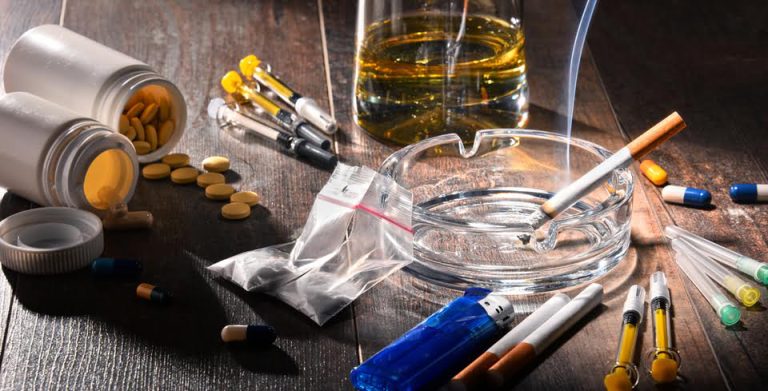- 25décembre
-
Alcohol intoxication: Signs, symptoms, and treatment
Therefore, prompt intervention is crucial in managing this severe condition and facilitating recovery. These conditions often exhibit overlap in symptoms such as confusion, vomiting, and slow breathing. In emergency settings, healthcare professionals utilize CT scans and blood tests to discern alcohol poisoning from other medical emergencies. The symptoms of alcohol poisoning are https://ecosoberhouse.com/ confusion, vomiting, seizures, slow breathing, gray or pale skin, hypothermia, and trouble staying awake.
Can Alcohol Poisoning Warning Signs Be Fatal?
- Decreased inhibition is a hallmark symptom of alcohol intoxication, occurring in nearly 90% of cases.
- Young adults are more likely to drink excessively, leading to an alcohol overdose.
- Women may be more sensitive to the effects of alcohol than men, even on a per-weight basis.
- According to the Centers for Disease Control and Prevention (CDC), there are 2,200 alcohol poisoning deaths in the United States each year.
Recognizing the signs of alcohol poisoning could save a life, whether it’s your own or someone else’s. Dr. Wakim is a board-certified psychiatrist with a passion for and expertise in addiction, mood disorders, trauma-related disorders and the subspecialty of interventional psychiatry. He obtained his medical degree from West Virginia University where he also completed his residency training, finishing as chief resident.
Alcohol Poisoning Risk Factors
URAC’s accreditation program is an independent audit to verify that A.D.A.M. follows rigorous standards of quality and accountability. A.D.A.M. is alcohol intoxication symptoms among the first to achieve this important distinction for online health information and services. Learn more about A.D.A.M.’s editorial policy, editorial process, and privacy policy. Check the person frequently to make sure their condition does not get worse.

What are the complications of intoxication?
If you encounter any of these severe alcohol intoxication symptoms, do not hesitate to contact emergency services or take the individual to the nearest emergency room. When it comes to alcohol intoxication, recognizing the signs and knowing when to seek help is crucial for ensuring the well-being and safety of individuals. Understanding the severity of alcohol intoxication symptoms can help you determine when it is necessary to call for emergency assistance and provide support to someone in need. Be vigilant for severe symptoms that could indicate alcohol poisoning.
- The largest vulnerable groups to present with benzodiazepine intoxication are children, who may ingest it accidentally, and elderly, who commonly complain of insomnia and are prescribed benzodiazepines.
- Women may be more sensitive than men, even on a per-weight basis, because their gastric (first-pass) metabolism of alcohol is less due to lower activity of alcohol dehydrogenase in the gastric mucosa.
- In the Church of Jesus Christ of Latter-day Saints, alcohol consumption is forbidden,52 and teetotalism has become a distinguishing feature of its members.
- Men ages are the most common demographic in alcohol poisoning-related fatalities.
What to Do If You Think Someone Has Alcohol Poisoning
Supplementary oxygen and intravenous fluids can be used for some of the patients as needed. Benzodiazepines like lorazepam 1–2 mg can be used for agitation or psychosis. The intoxication generally abates after a short period of time, and the patient improves. Regular users of inhalants should be further referred for treatment. The largest vulnerable groups to present with benzodiazepine intoxication are children, who may ingest it accidentally, and elderly, who commonly complain of insomnia and are prescribed benzodiazepines. Deteriorating metabolism and cognitive functioning may become factors responsible for accidental benzodiazepine overdose.
Diagnosis of Alcohol Toxicity and Withdrawal

Like nausea, vomiting is the body’s response to the toxic effects Twelve-step program of alcohol on the stomach. While vomiting can reduce the amount of alcohol in the stomach, it poses risks such as dehydration and aspiration (inhaling vomit into the lungs). Vomiting is more likely in individuals who consume alcohol rapidly or in large quantities. Confusion affects roughly 50-60% of those with alcohol intoxication, particularly in moderate to severe cases. Alcohol impairs cognitive functions, making it difficult to think clearly or make decisions.
Other medications to help with withdrawal or the effects of alcohol may also help. Your doctor can prescribe medications to help with secondary symptoms like headaches, nausea, mood disturbance, or cravings. In some cases, emergency medical care or a stay in a care facility may be necessary to help with extreme discomfort or to treat delirium. A variety of other symptoms can accompany alcohol-induced psychosis. These may arise from the other effects of alcohol on your body or from withdrawal. According to a systematic review from 2017, antipsychotic medications and alcohol use cessation are the most effective treatment options for alcohol-induced psychotic disorder.
In delirium tremens, delirium is the primary condition and alcohol-induced psychosis occurs as a symptom. It’s known as the most severe form of alcohol withdrawal, presenting with a sudden onset of intense confusion, agitation, and cognitive impairment, known as delirium. Psychosis is a rare complication of drinking alcohol for some people.
How Alcohol Affects the Body
Always consult with a qualified healthcare provider for diagnosis, treatment, and personalized medical recommendations. Not always, but repeated, uncontrolled vomiting—especially when consciousness is fading—should be treated as a medical emergency. Activated charcoal does not bind ethanol well and is not routinely used for pure alcohol poisoning. Emergency teams rely on targeted labs and drugs to stabilize vital functions and clear alcohol. “Timely dextrose is critical; one amp of 50 % dextrose can halt seizure activity within minutes,” explains the team at Eureka Health.
Posted by admin_av Posted on 25 DécDrop us a line


Post Comments 0